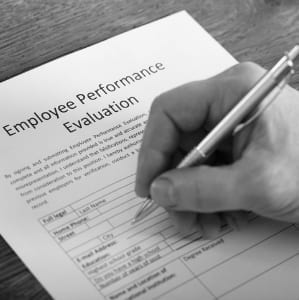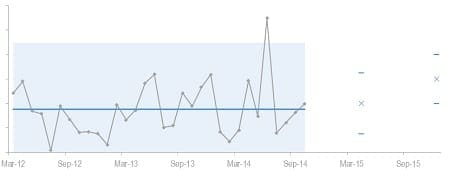Four Keys to Cascading Company KPIs to Individuals
March 30, 2021 by Stacey Barr | Leave a Comment


If one person measures another, it rarely improves performance. These 5 conditions must be met to measure personal performance so it can and will improve. (more…)
Filed Under: KPIs for Individuals (Measuring People)

What people believe a KPI or metric or performance measure will be used for fundamentally affects whether performance will improve or not. (more…)

Too many organisations still manage employee performance with annual KPIs. Overwhelming evidence proves it doesn't work. What's needed is 'performance forward' conversations.
Filed Under:
KPIs for Individuals (Measuring People)

When people have a fear of KPIs, of under-performance or bad decision-making being exposed, performance cannot improve. We have to kill the fear of KPIs. And we can. (more…)

If we want more KPI accountability, we have to be honest about who's really in control of it, and what's really in the way of it. (more…)

Work stress, projects behind schedule, and low productivity are all symptoms of an underlying problem with workload variability. You'll feel it as some months you can't get the important things even started, and other months you're pushing productivity past the redline. The solution lies in measuring the variation in workload, and not just the amount of it.


People can feel very threatened by performance measures, when they feel the measures are judging them personally. That's the topic of this Harvard ManageMentor video with Stacey Barr.
Filed Under:
Getting Buy-in, KPIs for Individuals (Measuring People)

I'm often asked how to measure people. Managers, executives and human resource professionals all want to know how to cascade company goals to individuals, and put measures in their performance agreements. It's the toughest question I am ever asked, because my answer isn't what they want to hear.
Filed Under:
KPIs for Individuals (Measuring People)
Haven’t found what you’re looking for? Want more information? Fill out the form below and I’ll get in touch with you as soon as possible.